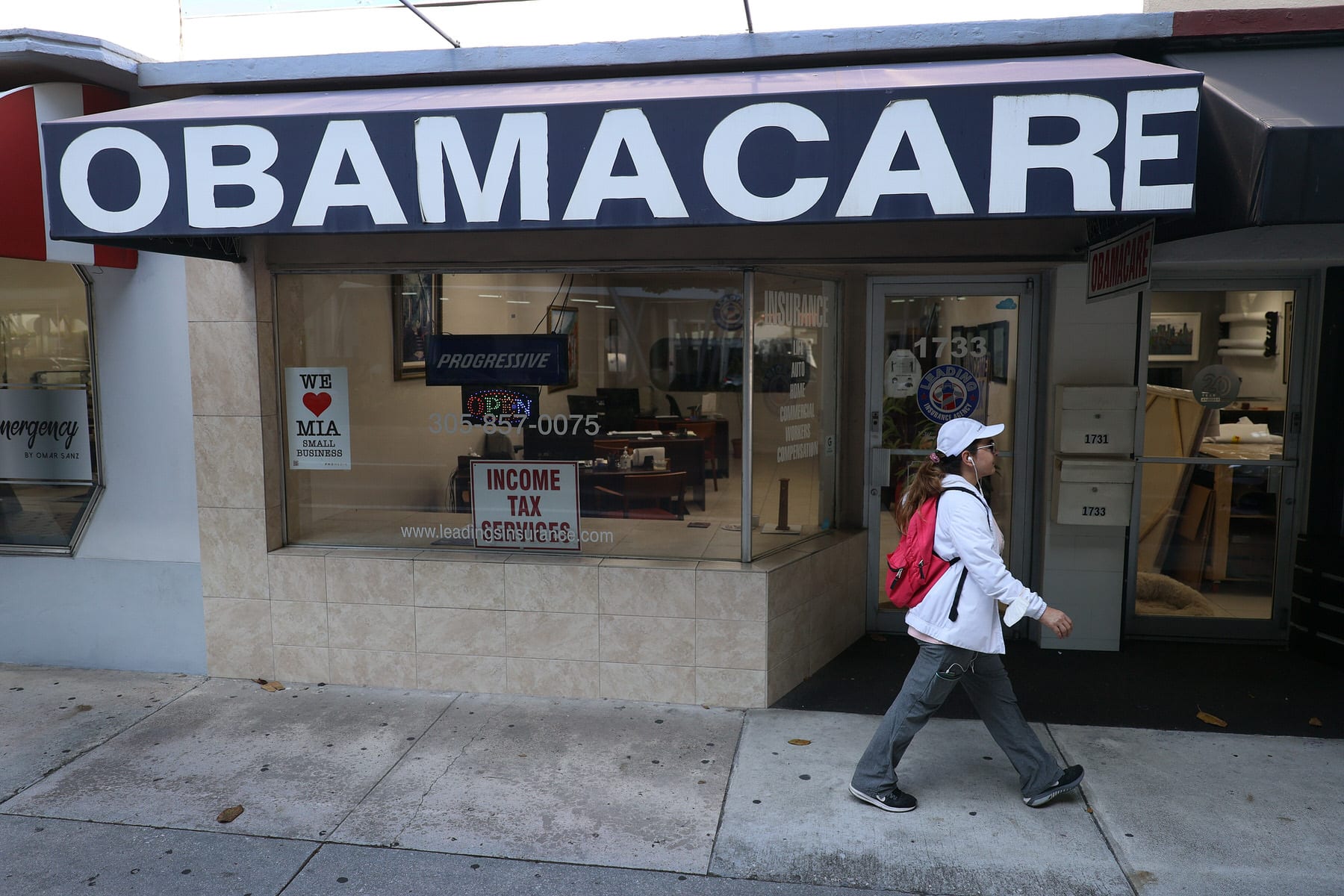President Joe Biden, who promised during his campaign to strengthen the Affordable Care Act and reverse abortion restrictions, signed executive orders Thursday that will have major ramifications for women and LGBTQ+ individuals, who disproportionately lost access to health care during the Trump years.
The Biden-Harris administration will direct the Department of Health and Human Services to open and heavily publicize a special enrollment period on the federally run health-care exchange, from February 15 to May 15.
Though people who lose employment should be able to buy individual insurance without a special enrollment period, the process is often confusing and difficult to navigate. That process was not helped along by the Trump administration, which cut efforts to advertise open enrollment periods. Women, who are more likely to cite cost as a barrier to having insurance, could benefit from a heavily publicized enrollment period for subsidized insurance. Transparency about the process could also be beneficial to transgender people, one in five of whom are uninsured.
The executive order further directs federal agencies to look at many Trump-era policies that worked to undermine the Affordable Care Act, including rules loosening health insurance protections for people with pre-existing conditions and Medicaid waivers that could have undercut the program’s benefits. Medicaid is the biggest payer for pregnancy-related care in the United States and the biggest payer for mental health care — both issues that disproportionately affect women — and 30 percent of women have pre-existing conditions, compared with 24 percent of men, according to the Kaiser Family Foundation.
In a statement, the Biden administration said the order would make the health-care system “easier to navigate and more equitable.”
This order will specifically focus on robust outreach — including paid advertisements and direct communication with consumers — to reach eligible people who have not been made aware of the open enrollment, a White House official said in a press briefing Thursday.
“There’s going to have to be a concerted broad effort to get the word out to communities that are vulnerable, both to COVID-19, as well as other health concerns at this critical moment.” said Dr. Jamila Taylor, director of health-care reform at the Century Foundation, a non-partisan think tank.
Biden also signed an executive order that could start the process for rescinding Trump-era restrictions to Title X, the program that provides federal grants for family planning clinics. Title X aims to protect low-income people who disproportionately struggle to receive access to health care, including reproductive services.
The Trump administration prohibited clinics from getting funding from Title X if they provided referrals for abortions, leaving out more than 400 Planned Parenthood affiliates. Many of these clinics provided a range of reproductive health services. The change cut Title X’s patient capacity by half, affecting 1.6 million patients, according to the Guttmacher Institute.
“Clinics have had to cut back staff … and so the broad range of services that the clinics provide including cancer screenings and contraception and [sexually transmitted infection] testing are less available,” said Laurie Sobel, associate director of women’s health policy at the Kaiser Family Foundation.
If implemented, Biden’s change could bring back those clinics that were barred. Reproductive rights advocates say that the change would emphasize what is generally considered to be best medical practices.
“Biden really seems to be prioritizing scientifically-based health policy,” said Lydia Pace, director of women’s policy and advocacy at Brigham and Women’s Hospital. “This effort would be part of that overall vision for kind of restoring a more evidence-based approach to public health.”
To address reproductive rights abroad, Biden also repealed the Mexico City policy, also known as the “global gag rule,” which prohibits foreign aid groups that get certain kinds of U.S. funding from “perform[ing] or actively promot[ing] abortion as a method of family planning.” Trump further expanded this policy to include all public health aid abroad, about $12 billion dollars, per the Guttmacher Institute, including money that addressed HIV treatment, pregnancy-related health, malaria, tuberculosis, water and sanitation, and child nutrition.
Studies show that the implementation of the Mexico City policy was associated with a 13.5 percent reduction in the use of contraception and a 40 percent increase in the rate of abortion. In Mozambique, a country suffering from high levels of AIDS-related mortality, at least 90 family planning clinics have closed since 2017 as a result of this rule, according to The Lancet, a medical journal.
Health-care advocates have called on Biden to take immediate action to erase all of the reproductive policies the Trump administration put in place to limit global funding. The Mexico City policy has constantly been reversed and reinstated with changes in White House leadership, so advocates are pushing for a more permanent response, such as legislation prohibiting the use of abortion referral as a reason to deny global health funding.
“We are calling on the Biden administration to take bold action to stop this deadly cycle of granting or rescinding human rights when the political tides shift. The U.S. has an obligation to safeguard human rights for all. But policies like the Global Gag Rule are an attack on our sovereignty and our humanity,” Dorothy Amuron, a health rights activist at the Center for Health, Human Rights and Development, wrote in a statement.
Every year, there are 35 million unsafe abortions around the world, which result in an estimated 23,000 preventable pregnancy-related deaths every year and disproportionately affect Black people, Indigenous people and other people of color who make up the majority of abortion patients, according to Dr. Herminia Palacio, the president and CEO at the Guttmacher Institute. Globally, abortion rates are roughly the same in countries where abortion is broadly legal and where it isn’t, according to the Guttmacher Institute.
“What’s different is the safety, legality and quality of abortion care accessible to individuals seeking these services. COVID has made addressing all of this much more urgent,” Palacio said in a news conference Wednesday.





